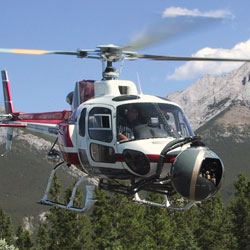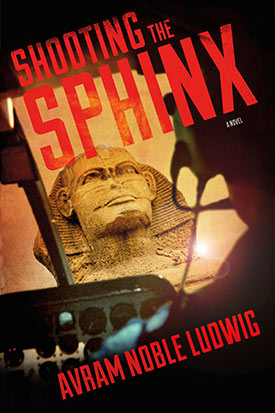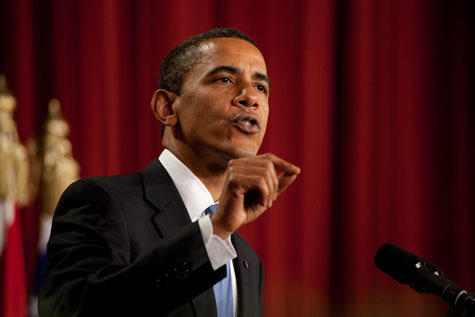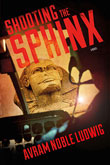
Read this exclusive guest post from Avram Noble Ludwig, author of Shooting the Sphinx, about the difficulties and experiences he faced in Egypt that inspired the novel, and then, make sure you're signed in and comment for a chance to win a copy of the book!
I first went to Egypt in 2005 to shoot a helicopter shot of the Sphinx for a Hollywood action movie. I remember stepping off the plane behind an Egyptian family from Great Neck Long Island—a mom, a dad, and their teenage daughter.
“I can’t believe I’m in Egypt!” the teenager kept repeating, in an accent as Jewish as any Bat Mitzvah girl from the Five Towns. “I can’t believe I’m in Egypt!”
Neither could I.
“Wait, just wait ‘til you drink the water from the Nile,” said the mother in the same Jewish accent. “Then you’ll believe you’re in Egypt.”
I remember that same romantic feeling. I can’t believe I’m in the Egypt of the pharaohs; the pyramids; the dessert; the Nile; Ra, the Sun god; Osiris; the first mummy; Isis, the goddess of magic; the treasure of King Tut; Cleopatra, who had bewitched Mark Anthony away from allegiance to Caesar; the Sphinx’s timeless riddle—but somehow, I knew that my journey into that ancient mystical land would not be an easy one. It wasn’t.
A week before my arrival in Egypt, we had received all the permits that we needed to film, except the signature of the Defense Minister. We had given up on being able to shoot the helicopter shot of the Sphinx. We wouldn’t have enough time to prepare. The next day, Field Marshal Tantawi approved our application. As portrayed in the novel, I went into overdrive to get ready.
 The Spacecam, a rare and expensive gyro-stabilized camera that mounts on the front or side of a helicopter, is based in Los Angeles. Overnight, the cameramen had to prep, pack, and ship the seventeen cases to New York. There was no time to ship the cases to Egypt as airfreight, so I had to fly with the seventeen massive pieces of luggage to Cairo International.
The Spacecam, a rare and expensive gyro-stabilized camera that mounts on the front or side of a helicopter, is based in Los Angeles. Overnight, the cameramen had to prep, pack, and ship the seventeen cases to New York. There was no time to ship the cases to Egypt as airfreight, so I had to fly with the seventeen massive pieces of luggage to Cairo International.
With a wagon full of heavy black cases in tow, I followed my Egyptian/American friends with the Jewish accents from Great Neck up to the customs desk. The customs inspectors confiscated the Spacecam under the watchful eye of a portrait of President Hosni Mubarak.
I spent days trying to reclaim the Spacecam. I waited in lines. I saw minor officials. I paid small fees to process applications in Arabic that I could not understand.
A strange Kafkaesque bureaucracy had cropped up in Egypt. I saw vestiges of British Colonialism mated with Soviet bureaucracy. Both systems had died, relegated to the ash heap of history, but somehow both had been resurrected and recombined in Egypt, due to the deep institutional and not-so-contradictory roots of Imperialism and socialist Pan-Arabism that run deep into the modern Egyptian governmental psyche.
My technical crew arrived from America. Our shoot date came and went without our camera. We bided our time and did what other work we could, taking still photos at the pyramids and in the vast sand dunes of the Western desert.
 During this time, I had one of the strangest meetings of my life. As recounted in Shooting the Sphinx, I went to see the head of customs at the Cairo International Airport—a General. I drank mint tea and waited in a chair in front of his desk for half an hour, while an Egyptian soap opera droned in the background on an old Russian black-and-white TV. The general looked up from his paperwork from time to time and smiled at me. I smiled back, but not a word exchanged. After half an hour, he looked up and said, “Do you like George Bush?”
During this time, I had one of the strangest meetings of my life. As recounted in Shooting the Sphinx, I went to see the head of customs at the Cairo International Airport—a General. I drank mint tea and waited in a chair in front of his desk for half an hour, while an Egyptian soap opera droned in the background on an old Russian black-and-white TV. The general looked up from his paperwork from time to time and smiled at me. I smiled back, but not a word exchanged. After half an hour, he looked up and said, “Do you like George Bush?”
Was he was testing me? I didn’t want to give the wrong answer. I studied the man. The Customs General sported a Saddam style mustache. I wondered if he wanted me to insult Bush. But, I didn’t think that was what he was looking for. After all, there was the ubiquitous portrait of President Hosni Mubarak right behind him on the wall.
I thought hard for a moment and said: “I think Bush made a mistake going into Iraq, a big mistake.”
The general smiled a wide and delighted smile. “You are good man. I give you your camera.” I knew I had come up with the perfect answer. Then he added: “Saddam is great man.”
In Egypt, I learned that government baksheesh was systemic. By underpaying government bureaucrats and police, the social norm became: the government pays them to show up, but bribes pay them to do their jobs. If you couldn’t afford a bribe, you couldn’t get something done.
For instance, a large enough bribe could secure a university degree—a practice which makes all degrees suspect and puts incompetent people into positions they are not qualified to fill. The result of this kind of activity is a general lowering of the standards of competence. When police live off bribes, they soon become thieves, taking people’s money during a routine traffic stop or casual encounter. If someone complains, the police would beat them, in some notable cases, to death.
Access to the regime is another form of corruption. If you had a friend who had a friend, who knew the right official, you could get something done. If not, you couldn’t. Monopolies were created for friends of the president’s children. When entire industries can be controlled or dominated by cronies of the regime, no one will challenge them. This stifles competition.
We did have to reapply to the Defense Minister Tantawi for another flight date around the head of the Sphinx. We were given another date a week later. If that expedited date was on account of any money changing hands, I never knew and never asked.
We did fly our historic mission. We would have to refuel and load our camera at the Air Force Base adjacent to Cairo International Airport, fly over downtown Cairo to the Necropolis in Giza, and make a dozen passes orbiting the Sphinx. We tried several different flight paths, but the most successful, the one that ultimately ended up in the film started low down in the valley near the Sphinx. We’d fly low just in front of it, then climb up, passing the tops of the pyramids in a line.
After our first sortie, we realized we were flying too high to get a good shot and went to the squadron commander to complain. Our Egyptian producer yelled angrily until the commander consented to let the pilots fly lower. On our next sortie, the pilots flew so low that the helicopter, a massive Soviet MI-17 about the size of a bus, kicked up a cyclone of dust. The tourists around the Sphinx below us fled in pandemonium as we cast an upside down mushroom cloud of sand and dust up in our downdraft.
Inadvertently, we chased hundreds of tourists every which way as we climbed up to the plateau of Giza and the vast desert beyond. Tourists took cover in the bus parking lot, only to find themselves trapped between the buses as our 60 mph rotor wash blew a torrent of dessert sandstorm into their faces.
The following day, the Supreme Military Council forbade anyone to fly around the Sphinx in a helicopter ever again.
I returned to Egypt in 2009 to prep the Middle Eastern shoot for the movie, Fair Game. Our movie told the story of Valerie Plame, the CIA agent who had been “outed” by Dick Cheney to punish her husband for revealing that Saddam Hussein was not building a nuclear bomb. This publicly contradicted the opposite claim Bush made in a State of the Union Address, his justification to the American people for going to war in Iraq.
I sensed a palpable mood change in the country. The Egyptians in the production company I was working with seemed impatient with the police and the minor officials we encountered.
Over breakfast one day, I saw an item in the paper. In an effort to discourage corruption, the Egyptian government had raised the pay of every civil servant by ten percent. Then, I saw another item in the paper about a man pulled over in his car by two policemen. They took his cell phone and a hundred and sixty-five Egyptian pounds (about $35). The next day, the man went to the police station to complain. The day after that, the two policemen came to his apartment and threw him out his window to his death. The police were sentenced to two years in prison. I doubt they actually served that much time, if any.
We were supposed to shoot at the University of Cairo on a Thursday. Our schedule was set. The actors Naomi Watts (who played Valerie Plame) and Sean Penn (who played her husband, Ambassador Joe Wilson) were on the way to Egypt when suddenly we were told that we couldn’t shoot. Fearing that some bribe would be asked for, I began to press the location manager who had shot there many times before to find out what was going on.
We were offered Friday, the day after, to shoot instead. No bribe was asked for. It turned out that Cairo University would have a special guest. President Obama was coming to make an historic speech to the youth of the Arab world. Our movie could wait a day.

Obama’s visit made an impression on the Egyptians we worked with. Obama was the complete antithesis to Bush, who himself was the son of a president. Bush had walked out power voluntarily, a point that was not lost on the Egyptians. Their President Hosni Mubarak had been in power for almost thirty years.
Due to disagreements well described in the novel, we switched production companies, not an easy thing to do in Egypt. The complex permitting procedure made that a nightmare and a “permitting fee” had to be paid to the crew guild to switch the permit over to the new production company.
One of the strangest sensations I’ve ever had was on the night I had my final conversation with the original Egyptian producer. We had paid him a large amount of money that had not yet been spent on the film. I demanded the money back. He refused to meet me in his office, which we had always done before. I wondered why. He insisted that we meet out at his country club late at night, where we could sit under the watchful eye of an armed guard at the front door and a night porter who could witness us together. He would only sit in sight of this guard.
He was nervous. He refused to return the money to the production, but still he was very frightened. I realized that he was physically frightened of me. I believe that he was prepared for me to kidnap him or kill him over the money. Witnessing this fear was so bizarre to me. I’m one of the least threatening people I know. I’ve never even punched anyone in my life. Why was he afraid? Was it because I was American? Had Iraq and Afghanistan, US raids in the middle of the night, the extrajudicial killings, targeted assassinations, the drones in Yemen and Pakistan, and the mistakes, the dead civilians, women and children and parents in wedding parties and funerals, made me a source of terror? Had the War on Terror made me an object of fear? I believe so.
Shooting the Sphinx is based on personal experiences, but it is a fictional account. I had no affairs with coworkers or Egyptian Revolutionaries. No one was murdered because of the movies I made. The revolution did not interrupt our filming. The hope of the Arab Spring in Egypt was a great source of inspiration and the spark that rekindled my memories of doing business in Cairo that led me to write this story.
However, you can taste fear when you see it, smell it even. For me it was an intoxicating moment, one to back away from for sure. Yet, I can now see how seductive it becomes, when one is presented with the easy temptation to solve a problem by paying money to a pesky policeman or a customs official or even a general, whether it’s simply to get an official to just do his job on time, or to make some troublesome person disappear.
Read an excerpt of Shooting the Sphinx here!
Comment below for a chance to win a copy of Shooting the Sphinx by Avram Noble Ludwig!
To enter, make sure you're a registered member of the site and simply leave a comment below.
TIP: Since only comments from registered users will be tabulated, if your user name appears in red above your comment—STOP—go log in, then try commenting again. If your user name appears in black above your comment, You’re In!
 Shooting the Sphinx Comment Sweepstakes: NO PURCHASE NECESSARY TO ENTER OR WIN. A purchase does not improve your chances of winning. Sweepstakes open to legal residents of 50 United States, D.C., and Canada (excluding Quebec), who are 18 years or older as of the date of entry. To enter, complete the “Post a Comment” entry at https://www.criminalelement.com/blogs/2016/06/my-time-in-egypt-inspiration-for-shooting-the-sphinx beginning at 4:30 p.m. Eastern Time (ET) June 28, 2016. Sweepstakes ends 4:29 p.m. ET July 8, 2016. Void outside the United States and Canada and where prohibited by law. Please see full details and official rules here. Sponsor: Macmillan, 175 Fifth Ave., New York, NY 10010.
Shooting the Sphinx Comment Sweepstakes: NO PURCHASE NECESSARY TO ENTER OR WIN. A purchase does not improve your chances of winning. Sweepstakes open to legal residents of 50 United States, D.C., and Canada (excluding Quebec), who are 18 years or older as of the date of entry. To enter, complete the “Post a Comment” entry at https://www.criminalelement.com/blogs/2016/06/my-time-in-egypt-inspiration-for-shooting-the-sphinx beginning at 4:30 p.m. Eastern Time (ET) June 28, 2016. Sweepstakes ends 4:29 p.m. ET July 8, 2016. Void outside the United States and Canada and where prohibited by law. Please see full details and official rules here. Sponsor: Macmillan, 175 Fifth Ave., New York, NY 10010.
To learn more or order a copy, visit:
opens in a new window![]() opens in a new window
opens in a new window![]()
Avram Noble Ludwig is a film producer, a director, and a playwright. Born into a theatrical family, he has produced over a dozen films and serves on the Board of Directors of the Actors Studio in New York. Shooting the Sphinx is his first novel.

Wow! Sounds like a wild ride!
Fascinating and thrilling.
Great post!
It was very interesting.
Please enter me in this sweepstakes.
Thanks —
What an exciting read.
Sounds like an exciting thriller. I look forward to reading it.
I have always wanted to visit Egypt, this will get me closer!
Would love to visit Egypt someday, but the conditions described make me keep my distance.
Intriguing giveaway. Thanks.
I know it’s a winner when I’m hooked in the first few paragraphs. I am and it is.
Very nice thriller!
I would love to read the book.
Sounds great!
I love the idea, and the writing’s exciting!
Thanks for the giveaway
you went through so much. dont think i could.
I’m in, sounds good!
Looks like a good read.
Yes! I want this book! Yes!
I would love to read this! Thanks
[b]Starts out great![/b]
Sounds like my vacations. Spend too much money. Sounds interesting.
Whatever could go wrong, did. I’d love to read the rest.
Somewhat scary because it seems so prescient. Corrupt officials, bribes, killings- suddenly in the world we inhabit it doesn’t seem at all like fiction
Travel by book!
I’d love to read this book; can’t help but wonder how difficult it would be to shoot in Egypt two governments later.
always wanted to visit there
thanks very much for the introduction to the book and its author. can’t wait to read it.
Sounds like an interesting read…Would love to win…Thanks…
It sounds great. I can’t wait to read it.
Fascinating – a must read!
I cannot believe what all you had to go through. Egypt is on my bucket list to see the sights; however, I don’t like hearing about all the corruption and class unfairness. Hopefully the changes that are starting to take place slowly will work towards the better over the next 20 years. Would enjoy reading your book. Thank you!
Egypt is such a historical country; what a wonderful opportunity to visit it. But with the unrest these days, I’d rather STAY HOME and read all
about it. Thanks for the sweeps.
What a wonderful setting!
Sounds like a great read. Egypt is definitely on my bucket list.
interesting setting
this sounds like the author has an excellent background to write this book
This sounds like an adventure I would like to know more about.
“Walk like an Egyptian”
Egypt would be an exciting place to visit
interesting
Want!
Interesting setting
interesting setting
Anything Egyptian I find fascinating!
sounds very interesting!
Wow! This is very interesting. Yes, I want to win….
A very interesting book !
This would be great, thanks.
A WINNER.
I want it.
This should be interesting and eye opening!
The book, as described by the author, looks fascinating.
Egypt has a fascinating history. I would love to win. Wish me luck!
I think I’m hooked
Would love to read this – love thrillers!!!
I’ve always been intrigued by Egypt and really enjoy reading this great book.
Love anything to do with Egypt….sounds interesting
thank you for the chance to win, i would love it
Thanks!
sounds great sign me up
Sounds interesting!
Would love to win
looking forward to reading this
I woul dlike to read the work of Avram Noble Ludwig.
hmm sounds like this would be a good read!
This sounds like a very interesting book. I can’t wait to read this.
I thank you for giving us all the chance to win.
Thanks for the great giveaway!
It sounds very interesting. Thanks.
This looks great
would love to read this, thanks
This is a fictional memior, based on real event? Anyway, it sound like good reading.
This looks like a great read.
I am fascinated. Thanks for the chance
[b]I love Egypt and reading about it. I truely hope to go there myself one day before I die. Soon I hope. I will take more pictures than ever imagined.[/b]